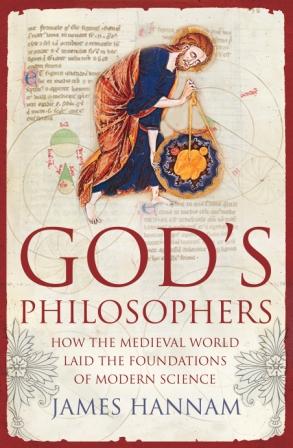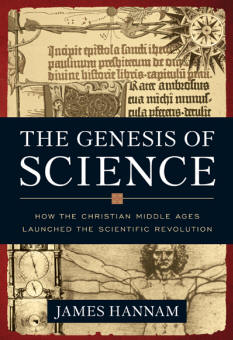
|
If you have enjoyed Bede's Library, you can order my book, The Genesis of Science: How the Christian Middle Ages Launched the Scientific Revolution (US) from Amazon.com or God's Philosophers: How the Medieval World Laid the Foundations of Modern Science (UK) from Amazon.co.uk. |
|
For my latest thoughts on science, politics, religion and history, read Quodlibeta
|
Contra Dawkins
![]()
A review of Letter to an Influential Atheist
by Roger Steer, Authentic Lifestyle, 2003
For a long time we have been crying out for a book length refutation of the personal philosophy of Professor Richard Dawkins, recently voted the UK's top public intellectual by the readers of Prospect Magazine. His thought has been obliterated in print before, most recently by the physicist Stephen Barr in his review of A Devil's Chaplain in First Things. However, I believe that Roger Steer has written the first book length reply and for this we should be grateful. I would also like to thank him for sending me a review copy to read.
The book is in the form of an open letter to Dawkins covering ten chapters. It moves through various facets of Dawkins's thought which it contrasts to Christian orthodoxy. As such, this is an explicitly Christian book which does not really attempt to refute ideas like memes, mind viruses and other ideas that Dawkins has popularised. The tone through out is polite if rather over-familiar with a couple of glaring exceptions. On occasion Steer accuses Dawkins of being 'disingenuous' or 'misleading' which gives the impression that he does not believe Dawkins is always writing with good faith. This is a mistake and almost certainly wrong. It seems to me that Dawkins is a fanatic who can believe things that would never pass muster with a more balanced mind, but I could never accuse him of not really, truly believing what he says. Indeed, if I thought he wasn't quite so sure of himself, I would find him considerably less frightening. Ironically, Steer is also sometimes over familiar, especially personalising the argument with references to Dawkins's wife. I'm not sure this is a good idea.
The book begins with a long account of the life and work of Alfred Russel Wallace, the co-discoverer of evolution with Charles Darwin. Wallace has always been a bit of an embarrassment to more doctrinaire historians of science as he continued to believe in the supernatural and that the mind did not evolve. In fact, an interest in spiritualism was very much of a piece among late nineteenth century intellectuals and Wallace was hardly untypical in this respect. But Steer seems to be implying that because Wallace was not such a hardcore Darwinist as Darwin was himself, this implies that doubts should be cast on evolution. I found this to be a non sequitur and rather a waste of time as an argument. Admittedly, Dawkins does not advertise Wallace's more esoteric beliefs but this is likely to be because he views them as utterly irrelevant to the truth of his theory. In this, Dawkins is correct. After all, Newton was a diligent alchemist who thought the world would end in 2063 (or there about). This does not mean we should become at all sceptical about Newton's laws of motion even if it does tell us something interesting about the history of science.
Much of the remains of the book is devoted to explaining how science cannot answer all the questions that some of its proponent purport and preach a Christian message. Some how I doubt Dawkins is going to be interested in listening to the later and will have heard the former before. Advocates of scientism, such as Dawkins, Daniel Dennett and E.O. Wilson, are fully aware that they cannot yet explain everything but are confidant that one day they will be able to. And if science cannot, they are sure nothing else will be able to either. Thus the way to refute them must be to use their own tools to show they are wrong rather than try to ring fence certain areas of enquiry and hope they keep out. I fear that if Dawkins himself were ever to reply to this book, he would probably make mincemeat of it, because Steer attacks where he is strongest. Indeed, even Steven Carr, taking time of from trolling my blog, has managed to string together a reasonably coherent critique of Steer's book.
In short, I find myself unable to recommend this book to anyone who is looking for a serious rebuttal of Dawkins's thought. Instead I would urge them to start with Barr's review linked above or else Alister McGrath's Dawkins' God.
Back to contents
![]()

